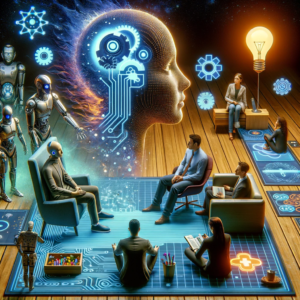The Journey of Self-Discovery
Over the last few years, my journey as an international adoptee from Colombia has led me to deeply explore my identity. The challenges brought on by Covid acted as a catalyst, pushing me to reflect more on myself and broadening my understanding of the adoptee world. The parallels I’ve found between my experiences and those of other marginalized groups have been striking and enlightening.
Resonating with Marginalized Voices
Every chapter I’ve delved into has spoken to me, resonating with my personal identity and the adoptee community. From insights into marginalized groups, trauma, cognitive biases, to locus of control, my professional and personal experiences have been validated and expanded. My involvement in inclusion & diversity initiatives and working with minority populations has shown me familiar concepts and messages within these case studies.
Ethnocentric Monoculturalism and Identity
The concept of ethnocentric monoculturalism is still very much present today. For adoptees, identity plays a crucial role, especially in communities that feel oppressed. Many adoptees, particularly international ones, are forced to assimilate into cultures without support, exhibiting behaviors of chameleons out of survival. This mirrors the survival tactics described in the book, where oppressed groups often adopt certain behaviors to “fit in.”
The Adoptee Experience: A Unique Perspective
Running an online group for adoptees and interviewing over 50 adopted adults has given me qualitative data on the subject. The reactions described as “white fragility” in adoptive parents when adult adoptees voice concerns are similar to the experiences of other marginalized groups.
Key Concepts: Locus of Control and Holistic Perspective
Two concepts that stood out to me were the objective measurement of locus of control and the emphasis on a balanced and holistic perspective. These concepts guide my quest to understand how different worldviews are shaped, especially in multicultural counseling. It’s crucial to differentiate between genuine mental disorders and behaviors that might be responses to oppression or survival tactics.
Capitalism and Anxiety
Reflecting on how our capitalist-driven society contributes to widespread anxiety, I’ve realized that many people don’t make the connection between their fears about the future and the societal structures they live within.
Supporting Scholarly Articles
- “Asian American Transracial Adoptees: Identity Development in College” from Colorado State University: This article discusses the identity development challenges faced by Asian American transracial adoptees in college, highlighting the complexities of navigating multiple cultural identities. Read more.
- “Adopted into an Identity Struggle: An Exploration of Themes Presented in Wo Ai Ni Mommy and Somewhere Between” from Boston University: This paper explores the complex identity issues faced by internationally adopted children, emphasizing the struggles with belonging and self-identity. Explore the themes.
- “Adoptive Identity and Adjustment from Adolescence to Emerging Adulthood: A Person-Centered Approach” from the National Center for Biotechnology Information (NCBI): This study examines the connections between adoptive identity and adjustment in adopted youth, providing insights into the identity formation and psychological adjustment of adoptees. Learn more.






